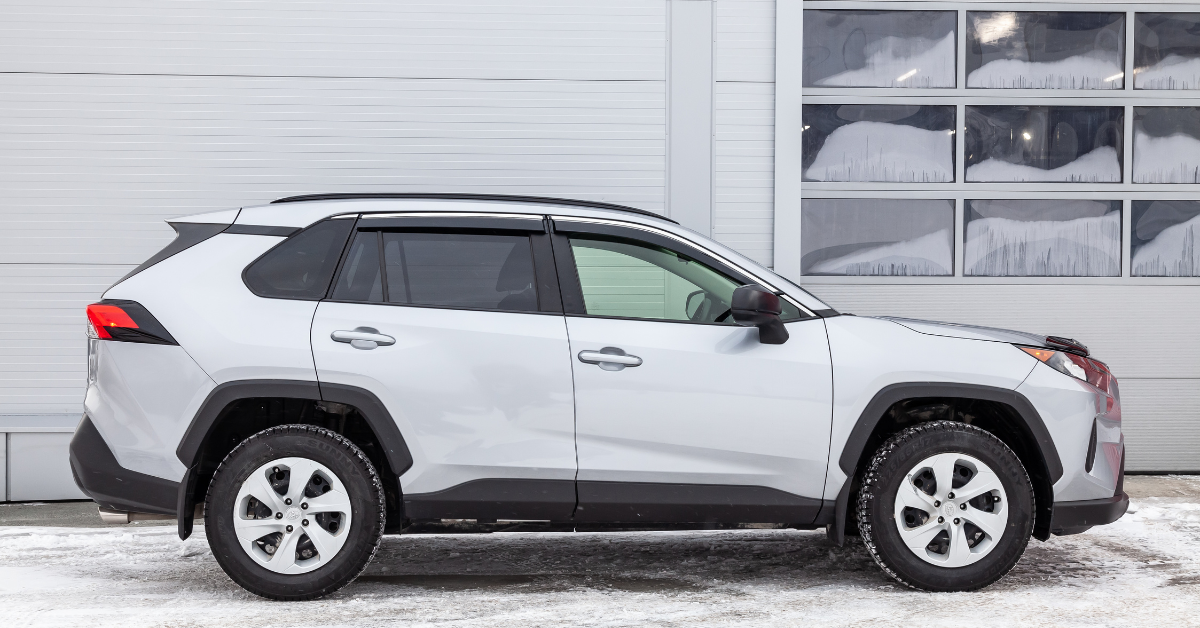The Toyota RAV4 has earned a strong reputation as a well-rounded SUV suitable for everyday driving, outdoor adventures, and long road trips. However, comfort in an SUV depends on multiple factors, such as the vehicle’s design, suspension, trim level, and road conditions. This article explores how the RAV4 performs in terms of ride comfort in both short- and long-distance driving and how it compares to other SUVs in the market.
General Ride Comfort of the RAV4
Balance Between Stability and Smoothness
The RAV4 benefits from a high-rigidity body structure, which helps suppress body roll and vibrations during cornering and high-speed driving. Its suspension setup includes a MacPherson strut at the front and a double-wishbone system at the rear, contributing to good handling and a comfortable ride on paved roads.
This structural design helps the RAV4 strike a balance between a stable drive and everyday ride comfort.
Short-Distance Comfort: Urban Driving Experience
Smooth Handling but Tire Selection Matters
When driving around town, the RAV4 offers the following pros and cons:
| Pros | Cons |
|---|---|
| Smooth acceleration and deceleration | Can feel firm over minor road imperfections |
| Quiet engine operation, especially in hybrid models | Larger wheels on higher trims may lead to a stiffer ride |
Urban comfort is highly influenced by wheel size, tire profile, and suspension settings. Drivers who prefer a softer ride may favor trims with smaller wheels and higher-profile tires.
Long-Distance Comfort: Highway and Extended Trips
Stability and Noise Insulation are Strong Points
For extended highway driving, the RAV4 provides:
- Excellent stability at high speeds with minimal body sway
- Reduced wind and engine noise due to improved sound insulation
- Comfortable seat design and reduced driver fatigue over long periods
However, some drivers report increased road noise, particularly in trims with larger wheels or off-road tires.
How the RAV4 Compares with Other SUVs
Performance and Comfort Side-by-Side
Here’s how the RAV4 stacks up against other SUV categories:
| Compared to | RAV4 Advantage | Potential Shortfall |
|---|---|---|
| Luxury crossovers | Strong driving feel and all-terrain capability | Interior may lack the upscale feel of premium models |
| Off-road-oriented SUVs | Good AWD functionality and ground clearance | May not match the softness of suspension in some off-road models |
In general, the RAV4 is considered an all-rounder with balanced strengths. While not the softest or most luxurious, it offers dependable comfort and versatility.
Trim-Level Impact on Ride Quality
Specifications That Change How It Feels
The RAV4’s comfort level can vary depending on its configuration. Here are key differences:
- Larger wheels offer a sportier look but a firmer ride
- Hybrid models are quieter and smoother during low-speed driving
- Trim levels differ in suspension tuning and interior features
Choosing the right trim based on your driving environment (city, highway, off-road) can significantly affect comfort.
Conclusion
The Toyota RAV4 offers a well-balanced ride, thanks to its solid chassis and thoughtfully designed suspension. It performs well in both short urban drives and long-distance cruising, making it an ideal choice for drivers seeking versatility and reliability.
That said, ride comfort can change based on wheel size, trim level, and driving conditions. A test drive is essential to ensure that the chosen model matches your personal comfort preferences.






